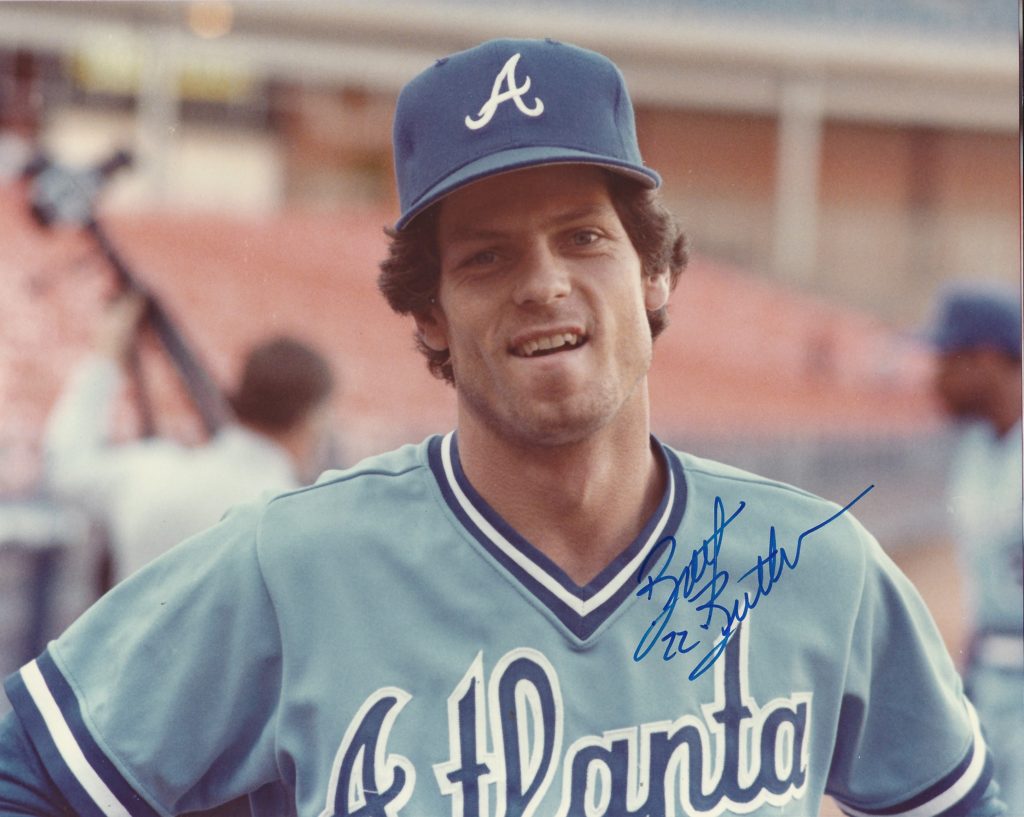
Periodically, an Atlanta Braves fan will propose trading prospects to fill a hole on an MLB roster. Occasionally, this strategy this pays off, as when the Houston Astros acquired Justin Verlander at the trade deadline in 2017, who then contributed to the Astros winning the World Series. Other times, it doesn’t work out as well.
This is a story about one of those times.
The Atlanta Braves, coming off a division title in 1982, were once again competing for the division in 1983. On August 28th, the Braves held a half-game lead on the Los Angeles Dodgers in the National League West. At the time, their rotation was led by 44-year-old Phil Niekro, Craig McMurtry and Pascual Perez. They knew they needed extra help down the stretch and decided to make their move.
The Cleveland Indians, 20.5 games out of first place and in the cellar of the American League East, had a starting pitcher in Len Barker, who had pitched a perfect game and been an All-Star in 1981 and led the AL in strikeouts in 1980 and 1981. However, he was in the last year of his contract and was experiencing elbow trouble during the 1983 season.
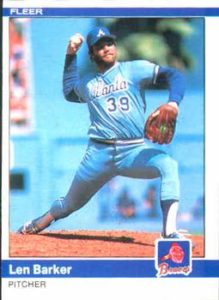
The two teams pulled the trigger on a trade with the Braves sending centerfielder Brett Butler, minor-league third baseman Brook Jacoby, pitcher Rick Behenna and $150,000 to the Indians for Barker. Since the Braves were in the midst of a pennant race, there was an interesting wrinkle put into the deal: Butler and Jacoby would not be sent to the Indians until after the season.
After the trade, Barker had a respectable 3.82 ERA but went 1-3 for the rest of the season. The Braves also faltered, going 12-20 to finish the season 88-74 and in second place, three games behind the Dodgers.
In the off-season that followed, that is when things began to fall apart for the Braves.
1983 was Phil Niekro‘s last season with the Braves. He was an All-Star in 1984 for the New York Yankees and won fifty games over the next four seasons before making a final start with the Braves in 1987.
Craig McMurtry won fifteen games and finished as 1983 NL Rookie of the Year runner-up to the Mets’ Darryl Strawberry. However, he only won thirteen games the rest of his career and was traded to the Blue Jays in 1987.
The colorful Pascual Perez was arrested during the off-season in the Dominican Republic for cocaine possession and did not rejoin the Braves until May of the following season. Despite the delay in starting his 1984 season, Perez still won 14 games and had a 3.74 ERA. However, in 1985, Perez fell apart with a 1-13 record with a 6.14 ERA and was released the following off-season.
Len Barker was re-signed to a five-year, $4 million contract after the 1983 season. Barker had a decent start to his 1984 season, going 7-8 with a 3.85 ERA. Late in the season, though, he developed an elbow problem that affected the rest of his career. Barker only won two games in 1985 and was released in early 1986 with three years left on his contract. He made a brief comeback in 1987 with the Brewers, winning two of eleven starts to finish out his career.
For all of the damage that was done to the Braves rotation post-1983, the offense was probably even worse off for the trade. Rick Behenna was a non-factor for the Indians, going 0-7 with a 7.16 ERA over the next three seasons with a -0.5 bWAR. However, Jacoby and Butler fared better.
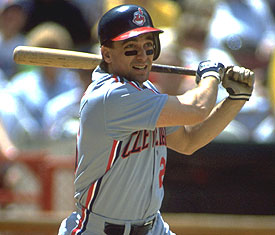
Jacoby, who was deemed expendable due to the presence of Bob Horner, took over as third baseman for the Tribe. He held down the position from 1984 until he was traded to the Oakland Athletics during the 1991 season. He re-signed with the Indians as a free agent for the 1992 season and finished his career there. During his career, Jacoby made two All-Star teams and finished his post-Braves career with 1,218 hits, 120 home runs, 544 runs batted in and a .271/.335/.406 slash line. He was worth 15.2 bWAR over the course of his American League career.
Butler was already an established centerfielder for the Atlanta Braves. He earned 2.5 bWAR over three seasons, stealing 69 bases and leading the league in triples in 1983. He only played for the Indians for four years but played for a total of fourteen seasons after leaving Atlanta. Butler only made one All-Star team, in 1991, finishing seventh in NL MVP balloting that season. He did, however, lead the league in runs scored twice, hits once, triples four times and bases on balls once. He ended his post-Braves career with 2,137 hits, 49 home runs, 500 runs batted in, 489 stolen bases and a .294/.382/.381 slash line. Butler was worth 47.2 bWAR the rest of his MLB career.
In total, the Braves got ten wins and 0.7 bWAR out of Len Barker while other MLB teams got 3,355 hits, 169 home runs, 1,044 runs batted in and 61.9 bWAR out of Behenna, Butler and Jacoby.
The 1983 playoff-contending run was the last time the Atlanta Braves would experience success for some time. They would endure seven consecutive losing seasons after that, averaging 94 losses per season. This streak would not end until the 1991 worst-to-first squad that would face the Minnesota Twins in the World Series.
In conclusion, if a team is trading multiple players and prospects to fill a hole on a roster, they need to ensure that they are correctly evaluating the affected players and their teams. If they do not do so, instead of winning a World Series, a franchise can be set back for years.

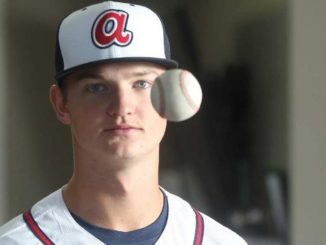
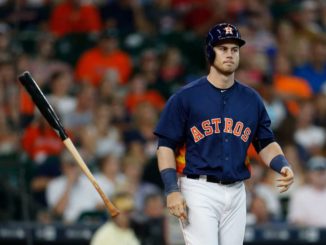
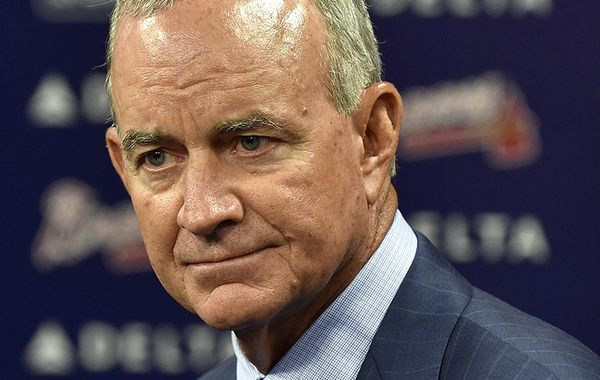
This was among the worst trades ever by the Braves, likely behind only the Texeira debacle. The Braves struggled for years to find a speedy leadoff hitter, and Horner’s promising start with Atlanta came to an end quickly so third base became another gap that was not filled until Chipper arrived.
I was watching an old YouTube 1988 broadcast of the Dodgers vs the Braves and Pete Van Wieren (Braves broadcaster) during a look back at that bad trade, said “Brett Butler became expendable, due to the emergence of young can’t miss prospect Al Hall. I guess they missed it”